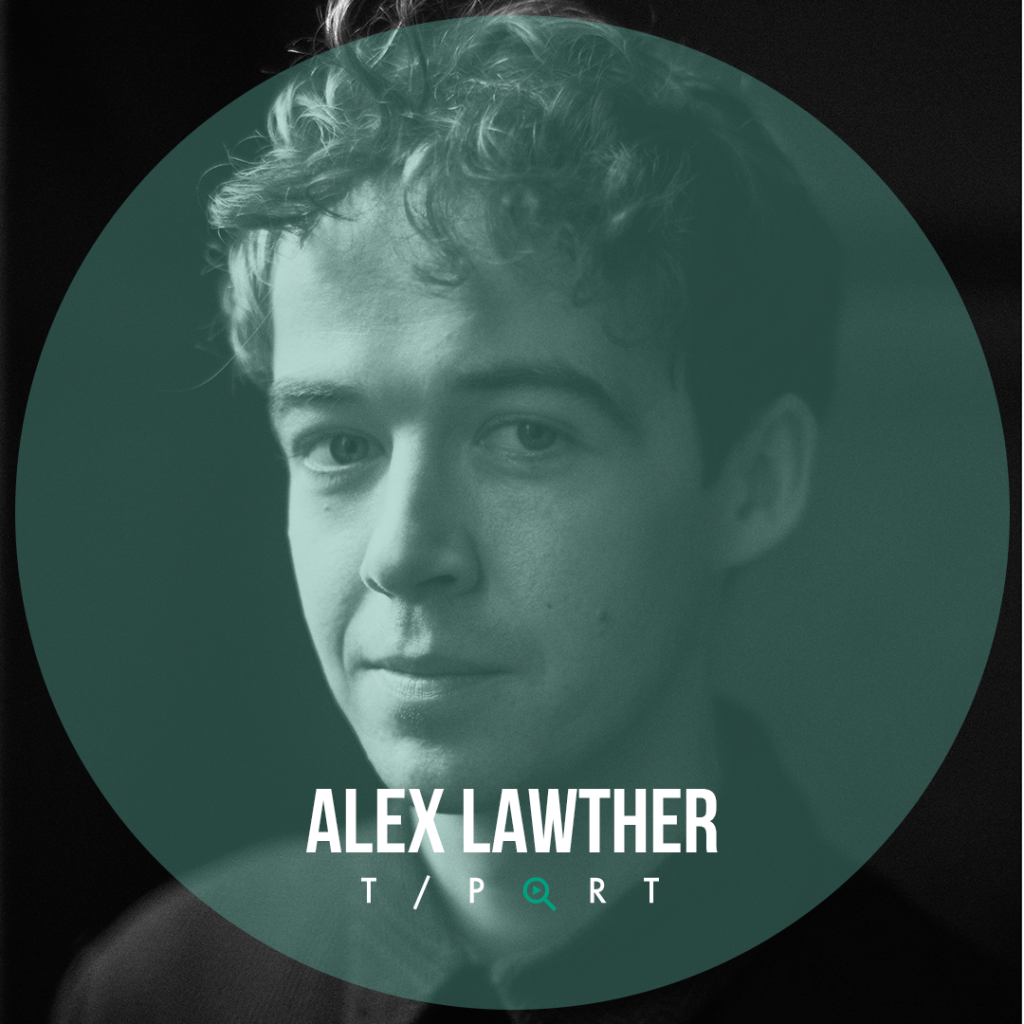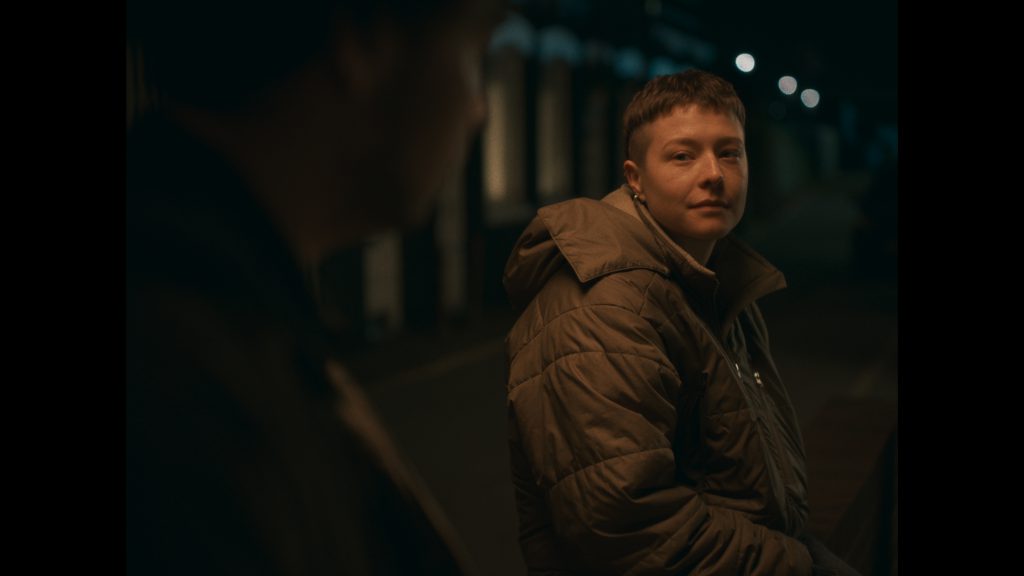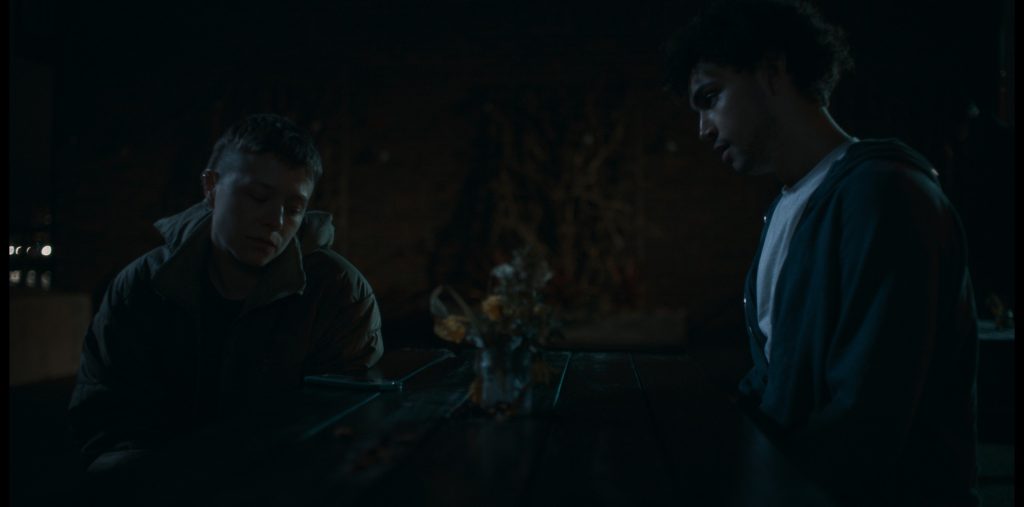 Alex Lawther has been making his name as an actor for quite some time, but his directorial debut, the short film FOR PEOPLE IN TROUBLE, which he also wrote, has already been making a splash on the festival circuit in 2023 and 2024.
Alex Lawther has been making his name as an actor for quite some time, but his directorial debut, the short film FOR PEOPLE IN TROUBLE, which he also wrote, has already been making a splash on the festival circuit in 2023 and 2024.
T-Port’s Jess Sweetman caught up with the Paris-based Brit, whose work appears on T-Port courtesy of our partners at Festival Formula, for a chat about his journey into filmmaking, how he was inspired by the music of Susanne Sundfør, and his approach to working with actors, and what’s next.
T-Port (TP): First, congratulations on making it to the Lighthouse Selections.
Alex (AL): Thank you.
TP: Could you tell me three interesting facts about your filmmaking career so far?
AL: I hope it’s an interesting fact, maybe not, but it’s my first time making a film. It’s my first time this side of the camera, but I’ve been working as an actor for about ten years.
My second interesting fact is: The film was really inspired by Susanne Sundfør, and her album “Music for People in Trouble,” hence the title of our short.
And she was the first person I contacted after writing the film, because I just wanted to share this thing that her album had inspired me to write.
And…an interesting fact – oh, gosh – about my work in general: I enjoyed it. I mean,it’s interesting to me. I had a suspicion that I would enjoy being on that side of the camera and I really did.
It really felt quite instinctual to me to have that relationship with other actors. It just also proved to me that I just love actors. I think actors are great and – yeah, it was a sort of a natural development for me to have that kind of dialogue with actors.
TP: So you’re like the anti-Hitchcock in that way, since he famously treated actors like cattle?
AL: Yes, I am so against that. I think it’s lazy directing. And it’s not allowing the actor to have their own sort of creative force. It’s not trusting them to have some sort of contribution.
TP: How did you react when you found out that the film had made it to the Lighthouse selections? How did that feel?
AL: It was really great. I mean, it screened at Torino and that was really exciting. One never knows how a film is going to live after it’s being made and I think it’s our first time being screened on the continent, which is lovely because I live half the time on the continent in Europe. I know it’s part of the biggest film market in Europe, it’s a huge film market, it’s just so cool.
TP: And what do you think this selection – and I’m going to extend it to other selections as well – What do you think your film getting into prestigious festivals means to your journey as a filmmaker?
AL: It’s a funny one because again – and I’ve done festival stuff as an actor before, but what I’ve loved about doing it as a director is that you meet other filmmakers and get to understand what else is going on, what else is being made.
Whereas I think sometimes, as an actor, you arrive so late in the process and, you know, seeing the film for the first time with the audiences watching at that festival and so you don’t
really have time to engage with a conversation that’s larger than your film. So I’ve loved it.
We got to open up in Tribeca at the film festival in New York in June and yet to be
in that huge, vibrant city presenting our film to an American audience about people at a pub in southeast London, it really was not in my imagination at all when making the film.
So I’ve been really surprised and my mind’s been really opened by the surprising journey that the film has been on. It continues to be massive. It’s great.
TP: You’ve talked a little bit about the album that inspired the film. Can you tell me a little bit more about the inspiration behind the film and behind the screenplay and the themes?
AL: So the film is about two people meeting at a pub in southeast London. It’s about 15-minutes long (and) in the course of 15 minutes some five years go past, and their relationship. And we see four scenes which are sort of us dipping into their relationship at different points in that relationship’s arc from meeting to (I suppose) the relationship breaking apart. And at the same time the world is sort of crumbling and the tension between the outside world and their private relationship is sort of what the film is trying to explore.
The inspiration for it came from Susanne’s first album, Music for People in Trouble, which I was listening to during the early days of COVID lockdown, and I listened to it obsessively.
I didn’t realise the time, but after reading interviews with Susanne I realised she talked about it, being a response to climate crisis and the sort of ever rapidly shifting and global tensions in the world. (It’s) a really poetic response to it because it never addresses it directly, it’s always sort of quite sidelined.
So you can listen to it without really – it’s not telling you what it’s about. It’s allowing you to sort of reflect on, first and foremost, the beauty of this album that she’s made. Anyway, I listened to it and it sort of suited me in a way, or sort of stirred up a want in me to try and make something that did something similar. To respond to something global,
a global angst, anxiety, worry – dread I think is probably a better word. But to do it in a way that never sort of addresses the problem head on, because I thought it’s more interesting.
And so she very kindly let me use one of the songs in the film soundtrack, and she also did
composition for the film as well. So that was along with another artist called Alexander Wells, but yeah, it was – and she was – a central figure in the film getting made.

TP: That’s amazing. So these collaborations were just happening through people creating art in the first place.
AL: Yeah, I love it so much.
TP: And tell me a bit more about the filmmaking process. How did the process go for you? What did it entail? Pick your highlight!
AL: I mean, the highlight was that first I sent the screenplay to a producer I know, who I had worked with as an actor. She produced a short film I made before, and I sort of wrote the script and I asked if she could give me some pointers like what to do next after you’ve written a script, what do you do?
She liked it. Sent it to a friend of hers who’s a scriptwriter, and the two of them said, Well, we would produce it for you and let’s go about trying to make the thing.
So that was sort of a really nice first coming together and being told: this is something we like to when we’d like to be part of telling this story.
And then I suppose my journey of that has been (that) I knew Emma D’arcy, the actor that plays Jenny in the film, and Emma and I have known each other for a little while. I first saw them perform in a bunch of theatre in London, and similarly with Archie (Madekwe) actually, who plays Paul. And so it was a comfortable ask, putting the script to them.
But also I think all the more so gratifying when a friend says: “yeah, I want to be part of this because then suddenly you’ve got two friends on board as well as collaborators.”
My highlights of making this film were people just coming on board and then shooting it in three days, shooting it and looking around and you have 20-odd people that I employ to those three days who have, I don’t know, given up their time. And to be part of telling this thing that had just existed on my laptop screen at first.
So yeah, my highlights have really been just sort of looking around and seeing all these people that are also involved. I always find that really funny, really moving..
TP: That’s amazing. And did you work especially with the actors, as you said that’s your approach and your background.
AL: I had an inordinate amount of time rehearsing with Emma and Archie. I mean, we only shot three days and they gave me three days of rehearsal as well. I mean, rehearsal was really (that) I just wanted us all to spend time with each other in the same room before pretending that they’d been together for maybe five years.
I just thought that the best way to go about that was one person to get used to the presence of the other person. I mean, they knew each other, I think vaguely Archie and Emma, but I just wanted them to spend time together. I suppose that’s what we thought the film is about, trying not to intrude on this couple’s relationship, but being an observer to it.
So yeah, we met, they went to the pub for lunch and they had a burger and chips and that was part of their rehearsal day. Bless them for allowing me that much time. But I think it paid off because by the time that we were shooting, it was we already they had a language together and they could sit in silence with each other quite comfortably in a way that maybe when you first meet another actor on set, there’s an awkwardness that we had to had to get out of the way before we started shooting.
TP: Yeah. It’s a really cool approach. And having been through the process of making your film, what do you wish that you’d known in advance?
AL: So much I think of being a director is delegating and allowing things to happen by the time you’re on set, most of the choices have already been made in terms of the way of shooting and the actors. And you just sort of have to, in a way, let people get give them the space to get on with their jobs. I think I inevitably find it quite stressful. I mean, (it was a ) wonderful three days, but I’ve never been so awake and slightly grinding my teeth for 72 hours.
But and I think maybe as you do it for longer, you sort of relax and get to sort of actually just enjoy it. And I think that will probably open you up to making more interesting choices because you’re less sort of fixed on.
But luckily I had brilliant people around me and I think that has now taught me that for the next project, I can just breathe a little more deeply.

TP: My final question is, what’s next for you?
AL: The plan is to do another short film in January (2024). And I’ve written and will direct again with two other actors. And then as an actor, I’m going back to Thailand.
I was shooting an “Alien” TV Show, directed by Noah Hawley, and we stopped during the strikes and we will pick it back up again beginning of next year. So I’ll be there another five months.
What a strange life, but exciting.
If you are a film industry professional and would like access to the catalogue and more, find out here how to sign up.
Filmmaker? Upload your short film to T-Port or sign up for our newsletter to get regular updates on the current trends and exciting innovations in the short film universe.
